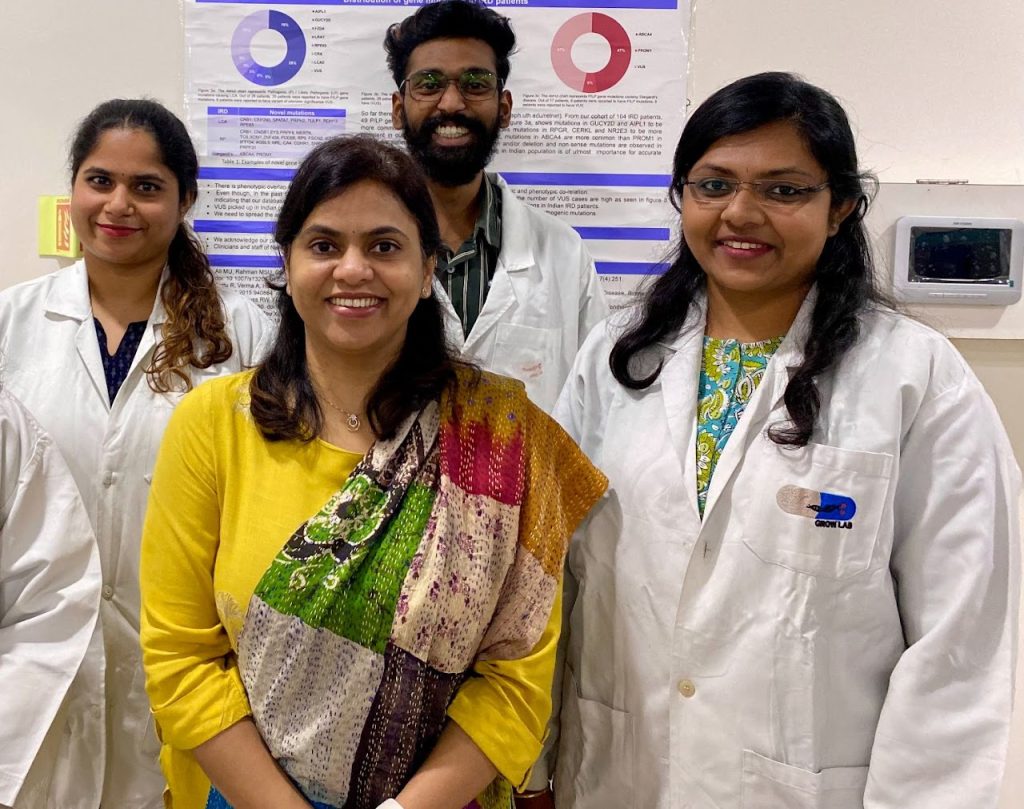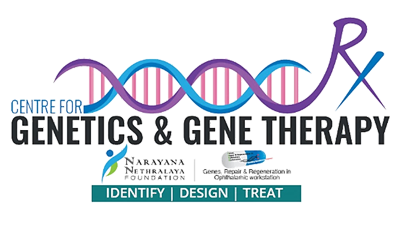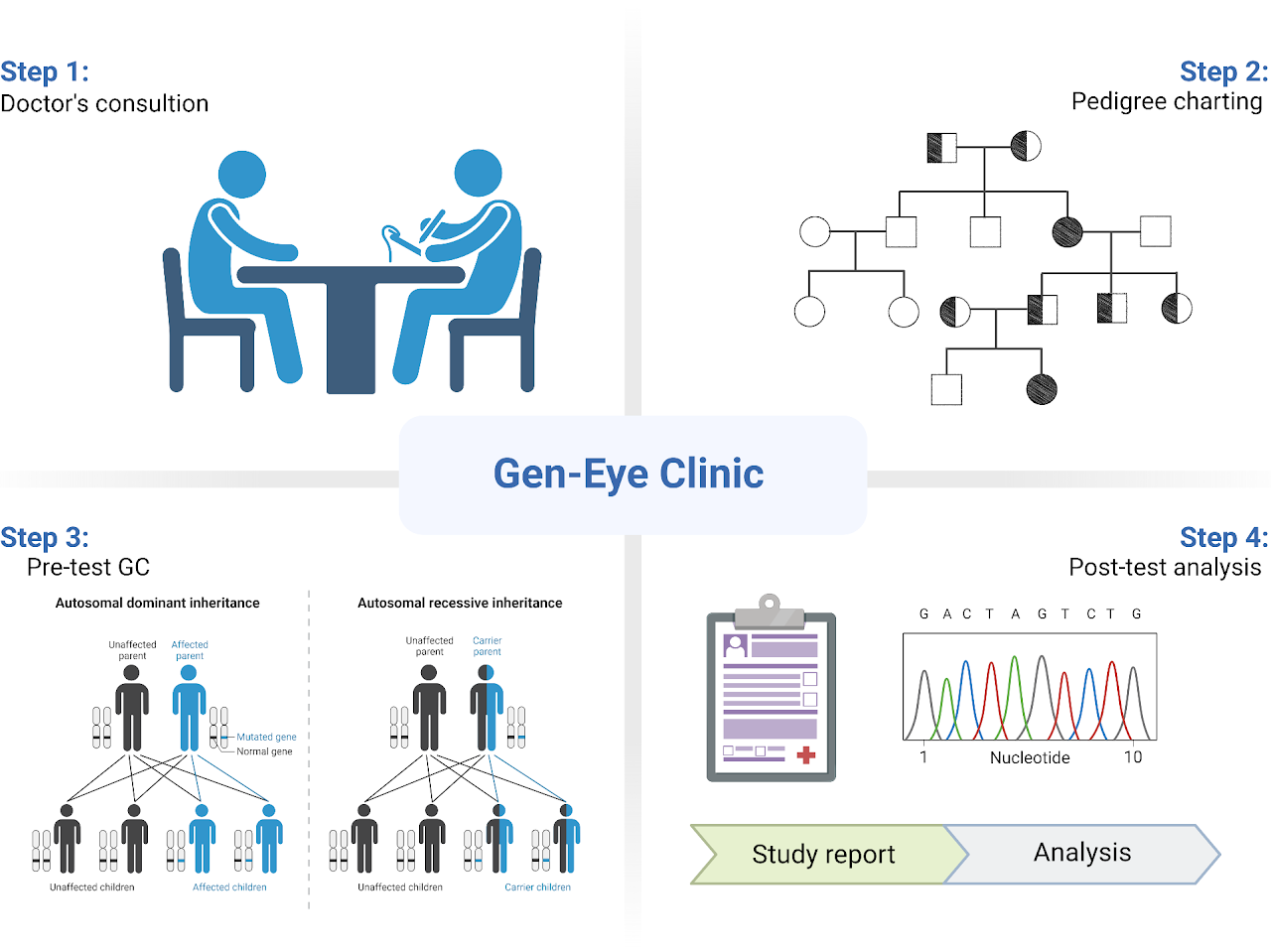

Inherited ocular disorders, both non-syndromic and syndromic are the major cause of blindness and vision problems in children and adults. Mutations in more than 350 genes are known to cause genetic eye disorders such as inherited retinal dystrophies (retinitis pigmentosa, Leber congenital amarousis, Stargardt, etc), congenital cataracts, glaucoma, optic atrophy and age-related macular degeneration. Mutations in one or several genes are usually responsible for a particular disease spectrum. Genetics plays a major role in the inheritance of such disease-causing variants. Acquiring these variants could involve an autosomal dominant, autosomal recessive or X-linked mode of inheritance within the family or appear as a sporadic mutation in an individual. Consanguineous marriages too may contribute to the higher prevalence of such disorders. Along with comprehensive vision tests for clinical diagnosis, patients are required to undergo genetic tests additionally as evidence to support the latter diagnosis, as these disorders present themselves with a high phenotypic and genetic heterogeneity and therefore accurate diagnosis and prognosis becomes necessary. Genetic testing service providers use next-generation sequencing platforms to screen for genetic variants at affordable costs.
Currently, most of these genetic disorders are incurable and require suitable management options. Gene and cell therapies are potential treatment modalities, following successful clinical trials outcome of gene augmentation therapy for RPE65-associated LCA, Luxturna, and gene therapies for several other genes are underway. Therefore, it is important that patients are encouraged at tertiary clinical centers to consider genetic counselling and testing. Genetic counselling, helps patients understand the anatomy of the eye, vision biology, Mendelian genetics and inheritance patterns involved, ongoing research and resources. Interpretation of genetic test reports is also facilitated by the counsellor. Genetic counselling also takes care of patients' psychosocial well-being by helping them make informed lifestyle decisions and provides support and hope for possible gene therapies once available in the future. Patients are recommended vision rehabilitation services to cope with their situation. Therefore, delivering a holistic clinical approach by essentially including genetic services in hospitals is highly crucial for better and personalised patient care.






